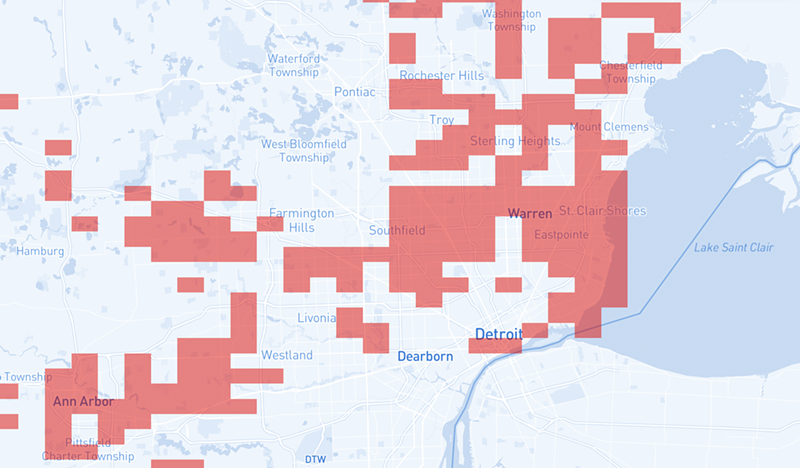
The following op-ed was written by Rev. Lafayette Price, Ph.D., of Detroit's Antioch Church of God in Christ.
The digital divide has deservedly gotten significant attention since the beginning of the pandemic. As countless Americans have relied upon the internet during the pandemic to function remotely for work, school and telehealth services, far too many other Americans have been without this critical resource and as a result have been put at an unfair disadvantage. We’ve seen this disparity fuel a concerning “homework gap,” in which students, in most cases living in low-income households, lacked the necessary digital resources to learn remotely. As a result, through no fault of their own, they fell behind in school.
It is refreshing to see that lawmakers are aware of the urgent need to address this inequality, as evidenced by the $65 billion included in President Joe Biden’s bipartisan Infrastructure Law. This federal funding is devoted to a comprehensive effort to address the root causes of the digital divide.
Lawmakers delivering resources to address the problem is just one piece of the puzzle though, it also takes private investment and responsible corporate action to ensure that all Americans have access to high-speed internet. Unfortunately, the modern-day practice of “digital redlining” is the exact opposite of the equitable private investment that we need to close the divide. Digital redlining refers to how some telecommunications companies deploy broadband technology unequally by prioritizing upgrades in higher-income, predominantly white areas while neglecting similar upgrades in diverse low-income communities, leaving them with significantly slower speeds.
AT&T serves as the most prominent example of digital redlining here in Michigan. In 2017, the National Digital Inclusion Alliance did an analysis of AT&T’s fiber buildout in Wayne County and found a significant correlation between “neighborhoods where AT&T has chosen not to deploy the newer fiber-to-the-neighborhood technology, and those with poverty rates of 35% or more.” That study was from a few years ago, but the most recent mapping of AT&T’s fiber availability in Detroit tells a similar story — AT&T is not investing in broadband technology upgrades in Wayne County’s poorer communities, leaving these residents with slower speeds.
This digital discrimination draws parallels to the redlining practices that plagued Detroit’s communities of color throughout the 20th century. Back then, housing loans were purposefully withheld from Black neighborhoods, depriving countless families of the American dream of homeownership. Now, communities of color are being deprived of the internet technology they desperately need to attain an education or equal employment opportunities. If gone unaddressed, digital redlining will have a similar lingering effect that is visible for generations as well.
We need elected officials, whether in the State Legislature or in the Attorney General’s office, to investigate the full extent to which companies like AT&T are digital redlining. Anything less than a thorough investigation is an insult to students from low income households, who have had to miss out on the technology they need to learn simply because a corporation does not view their neighborhood as a good investment. Children’s futures should not be dictated by corporate neglect. Americans, regardless of socioeconomic standing, deserve equal access to the internet. We cannot allow such pivotal players in the internet space to continue to disregard this simple principle.
Stay connected with Detroit Metro Times. Subscribe to our newsletters, and follow us on Google News, Apple News, Twitter, Facebook, Instagram, Reddit, or TikTok.





